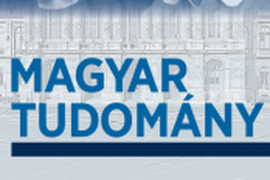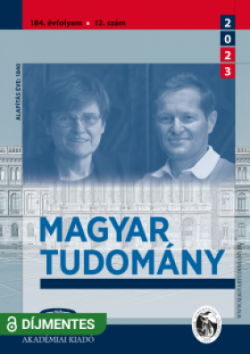
News
The thematic block starts with an introductory paper co-authored by guest editors Gábor Kecskés (HYA co-chair), Katalin Solymosi (HYA alumna and former co-chair) and Imola Wilhelm (HYA co-chair), which is followed by five papers on crucial topics affecting young researchers.
 Katalin Solymosi (Eötvös Loránd University) presents the establishment, objectives and tasks of national and international young academies in her article „Fiatal Akadémiák” – a fiatal kutatók részvétele a tudománypolitikában [“Young Academies” – The Participation of Early-Career Researchers in Science Policy], and explains the advantages of involving the generation of young researchers in science policy decision-making and sector-specific counselling.
Katalin Solymosi (Eötvös Loránd University) presents the establishment, objectives and tasks of national and international young academies in her article „Fiatal Akadémiák” – a fiatal kutatók részvétele a tudománypolitikában [“Young Academies” – The Participation of Early-Career Researchers in Science Policy], and explains the advantages of involving the generation of young researchers in science policy decision-making and sector-specific counselling.
Ágnes Máté (MTA Library and Information Centre) reminisces about the foundation of the Hungarian Young Academy and the activities of the first five years of its history: A kezdetek: anekdotikus elbeszélés a Fiatal Kutatók Akadémiájának megalakulásáról [The Beginnings: An Anecdotal Narrative on the Founding of the Hungarian Young Academy].
The findings of the questionnaire survey carried out at the initiative and with the coordination of the Hungarian Young Academy in 2021 are presented by Brigitta Németh (HUN-REN Research Centre for Economic and Regional Studies and Corvinus University of Budapest) et al. in their paper Egyenlőtlenségek a magyarországi fiatal kutatók között: tanulságok a Fiatal Kutatók Akadémiájának 2021-es felméréséből [ Inequalities among Early-Career Researchers in Hungary: Lessons Learned from the 2021 Survey of the Hungarian Young Academy]. The research led by Balázs Lengyel (HUN-REN esearch Centre for Economic and Regional Studies and Corvinus University of Budapest) sheds light on the fact that due to the uneven distribution of burdens borne by researchers in the early stages of a scientific career, inequalities between young researchers and lecturers predominantly appear in relation to starting a family. Dissatisfaction is exacerbated by low incomes and heavy teaching workloads.
These issues are taken a step further in the next paper (A Fiatal Kutatók Akadémiájának javaslatai a magyarországi fiatal kutatók helyzetének javítására) [Proposals of the Hungarian Young Academy for the Improvement of the Status of Hungarian Young Researchers], in which Imola Wilhelm (HUN-REN Biological Research Centre, Szeged) et al. enumerate the most important problems for Hungarian young researchers, and they also propose concrete solutions to them.
Finally, in their paper Az ösztöndíjak és támogatások szerepe a fiatal kutatói életpálya során [The Role of Scholarships and Grants in the Career of Young Researchers], Bálint Hartmann (HUN-REN Centre for Energy Research) et al. provide an overview of the discrepancies of Hungarian grant schemes, and offer suggestions on the elaboration of financial support schemes that are more reliable and more transparent than the structures currently in place.